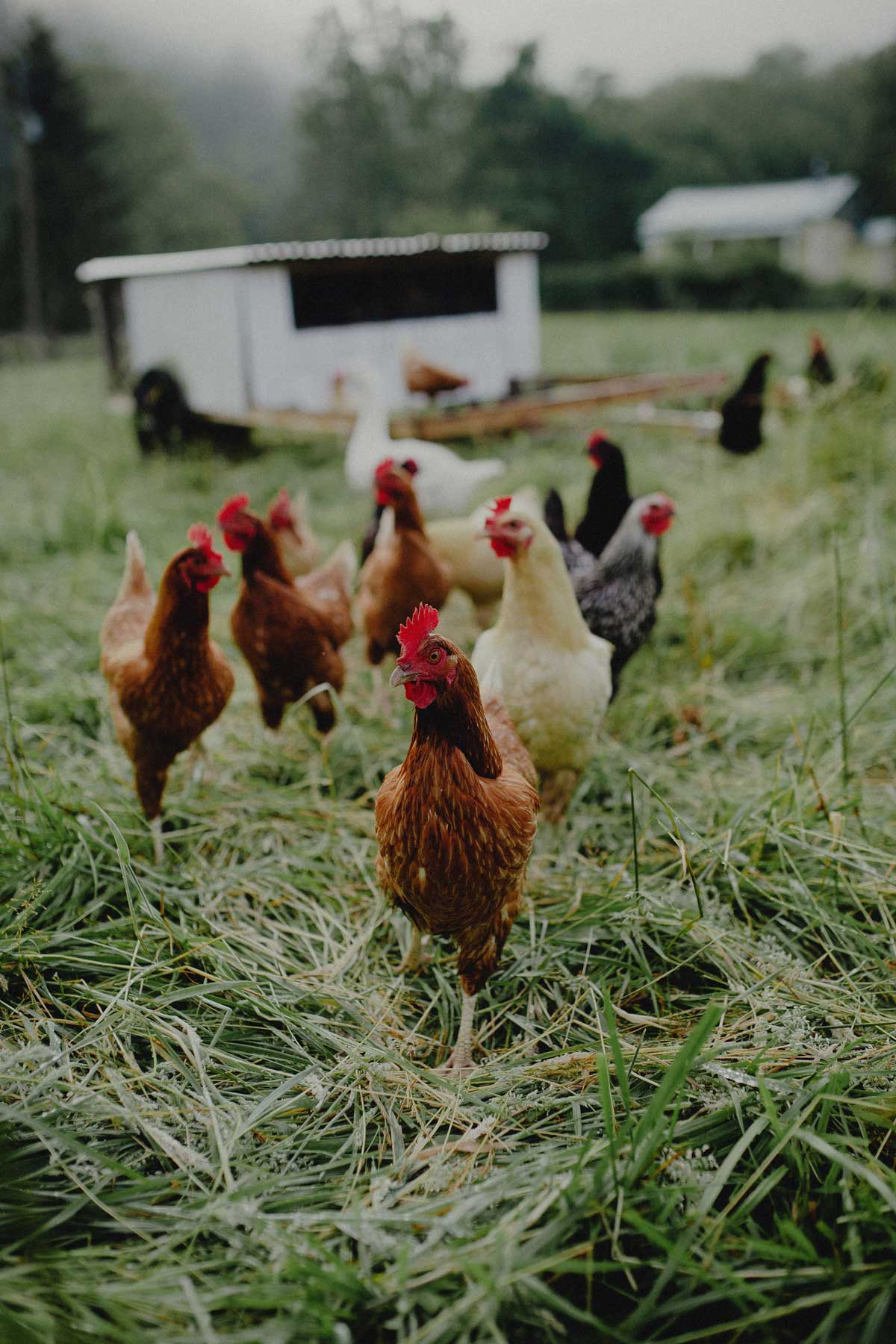Chickens are popular farm animals, and chicken husbandry is an important part of many people’s lives. Carrots are a nutritious and delicious treat for chickens, and can offer many benefits when included in their diet. If you’re wondering how chickens eat carrots and what advantages they can bring to your chicken husbandry, this article will help you understand why chickens love carrots and how you can use them to help improve your flock’s diet.
Benefits of Carrots for Chickens
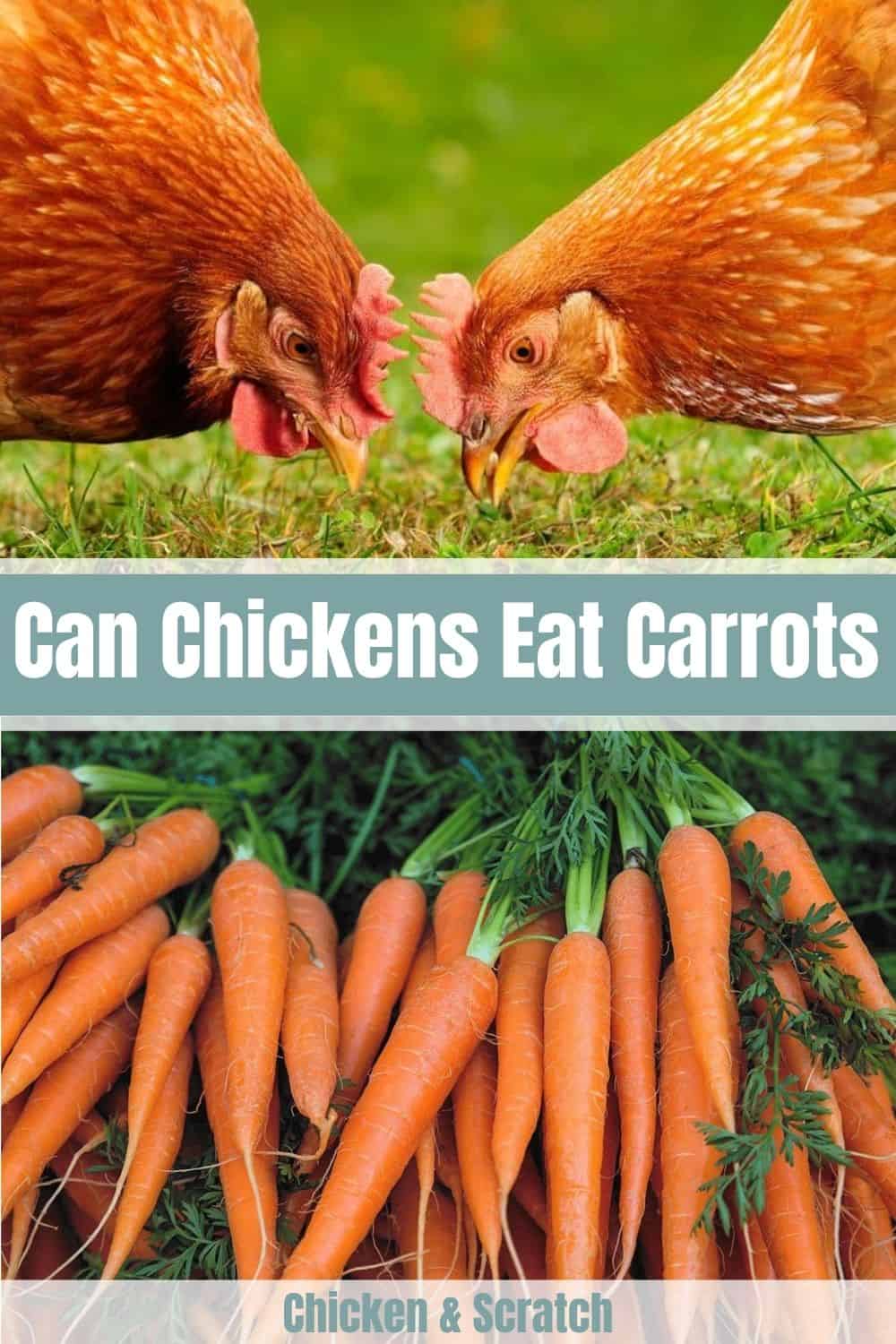
Carrots are a great way to supplement the diet of your chickens. They are packed with vitamins, minerals, and fiber which can help improve the health of your chickens. Carrots are also a great source of energy for chickens and can help keep them active and healthy. Plus, do chickens like carrots? Yes, chickens love them! Carrots can also provide chickens with a tasty treat that they can enjoy.
Carrots are a good source of vitamin A, which helps to promote healthy skin, feathers, and good eyesight in chickens. Vitamin A is also essential for egg production. Carrots are also a good source of Vitamin C, which helps to support the immune system and can help prevent diseases. Carrots are a great source of dietary fiber, which can help to improve digestion and nutrient absorption in chickens.
Carrots are also rich in minerals, including calcium, magnesium, and potassium. These minerals help to promote strong bones and healthy muscles in chickens. Carrots can also provide a healthy source of carbohydrates, which helps to keep chickens energized.
In addition to providing nutritional benefits, carrots can also help to improve your chickens’ mental health. Eating carrots can help to keep chickens calm, reduce stress, and improve their mood. Carrots can also help to reduce boredom, as chickens can spend time pecking and peeling the carrots.
Overall, carrots are a great way to supplement the diet of your chickens and provide them with numerous health benefits. Not to mention, do chickens like carrots? Yes, most chickens love them!
Types of Carrots Chickens Can Eat
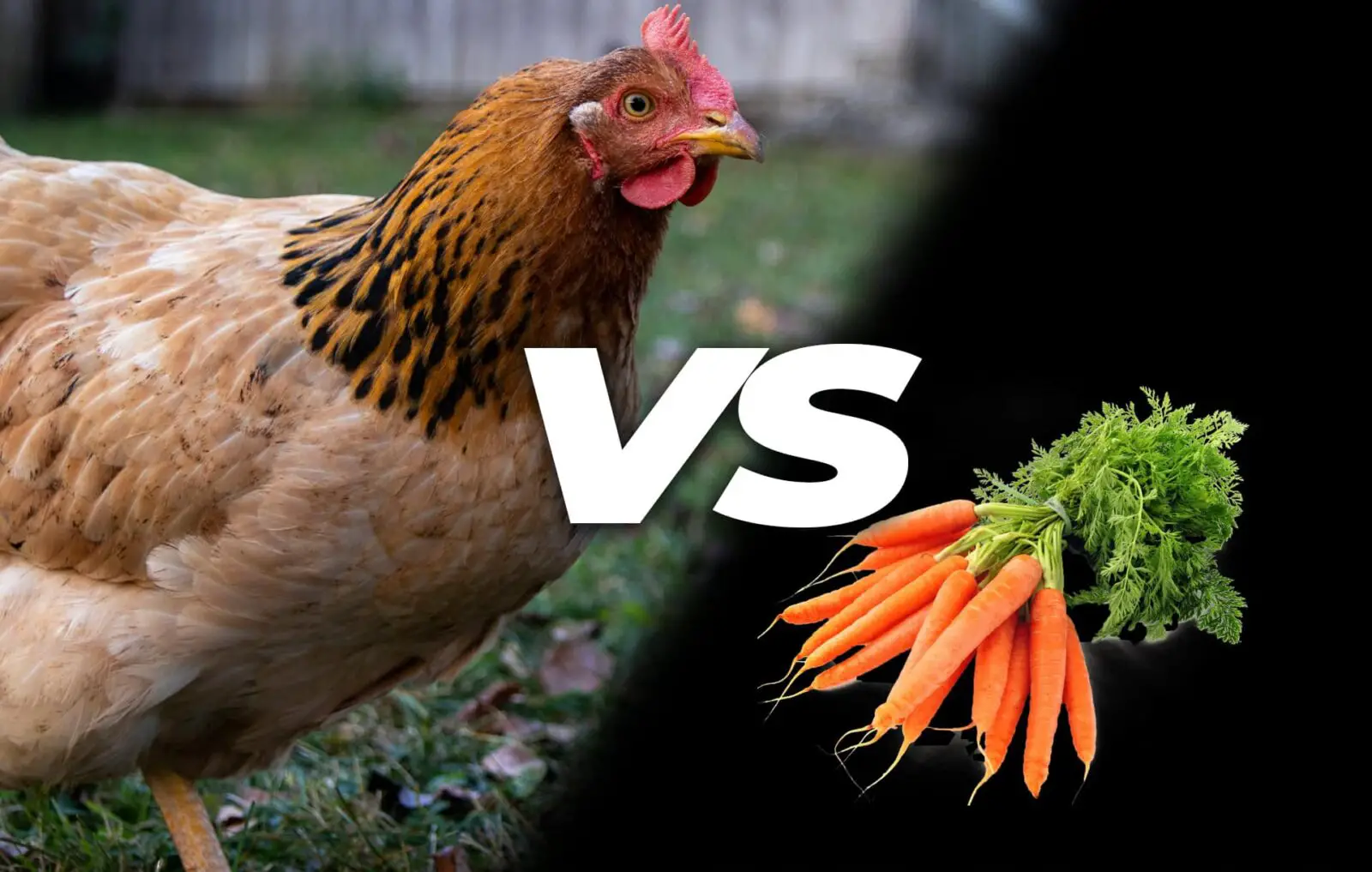
Raw
Chickens can eat raw carrots, and they are a healthy snack for them. Raw carrots should be washed and cut into small pieces, so they are easier for the chickens to eat.
Cooked
Cooked carrots are also a great snack for chickens. Boil or steam carrots until they are soft and mash them up into small pieces. Cooked carrots are easier for chickens to digest and can provide a boost of vitamins and minerals.
Canned
Canned carrots can be given to chickens, but it is important to check the label for added salt or other preservatives that could be harmful to chickens. If there are any added ingredients, it is best to avoid feeding canned carrots to chickens.
Baby
Chickens can eat baby carrots, but they should be washed and cut into small pieces. Baby carrots are a good source of vitamins and minerals, and they are an easy snack for chickens to eat.
In conclusion, chickens can eat carrots in a variety of forms, including raw, cooked, canned, and baby. Carrots are a healthy and nutritious snack that can provide chickens with essential vitamins and minerals.
How to Feed Carrots to Chickens
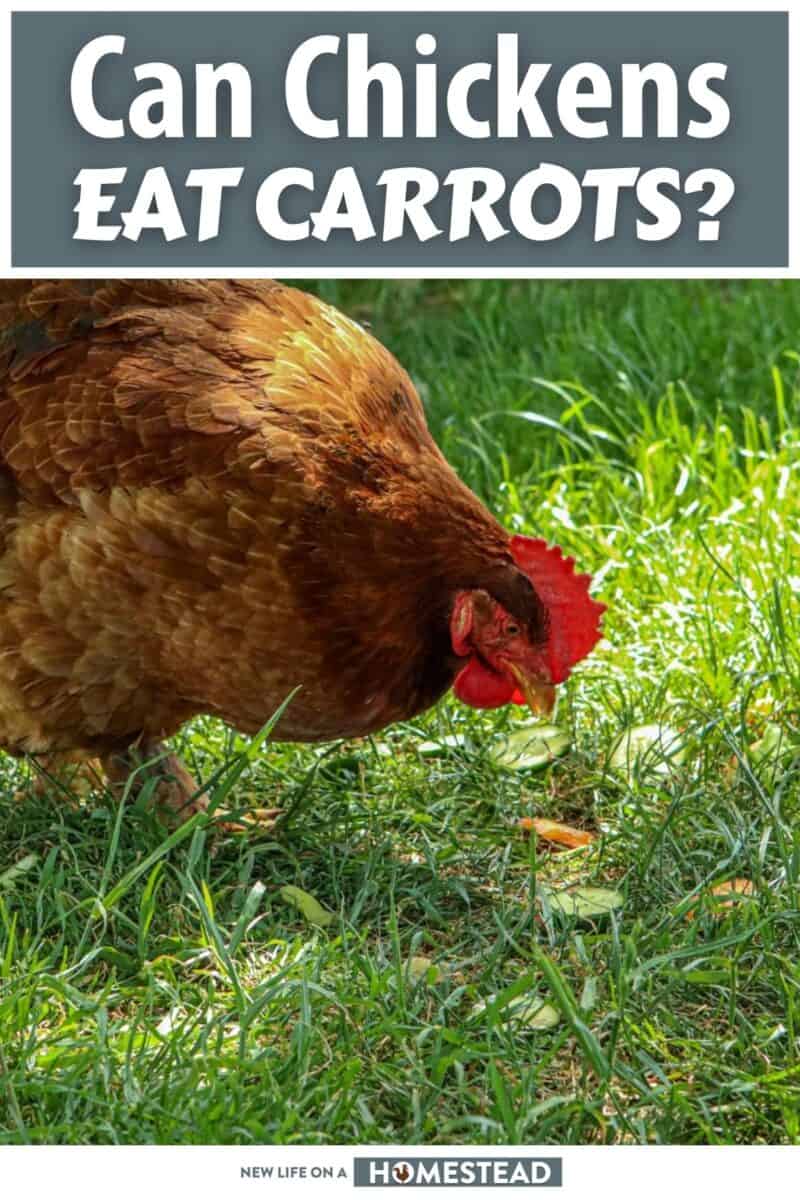
- Chickens Eat Carrots: Carrots are a great snack for chickens. They are high in Vitamin A and offer a good source of essential vitamins and minerals.
- Fresh or Cooked Carrots: You can feed your chickens either fresh, raw carrots or cooked carrots. Cooked carrots are easier to digest, so chickens may prefer them.
- Cutting Carrots: If you choose to feed your chickens fresh carrots, make sure to cut them into small pieces so the chickens can easily eat them.
- Snack Time: The best time to feed your chickens carrots is during their snack time. Place a few pieces of chopped carrots in their feeders and watch them enjoy their snack.
- Dispose Unconsumed Carrots: If your chickens don’t eat all of the carrots, dispose of them to avoid spoiling or attracting pests.
Precautions When Feeding Carrots to Chickens
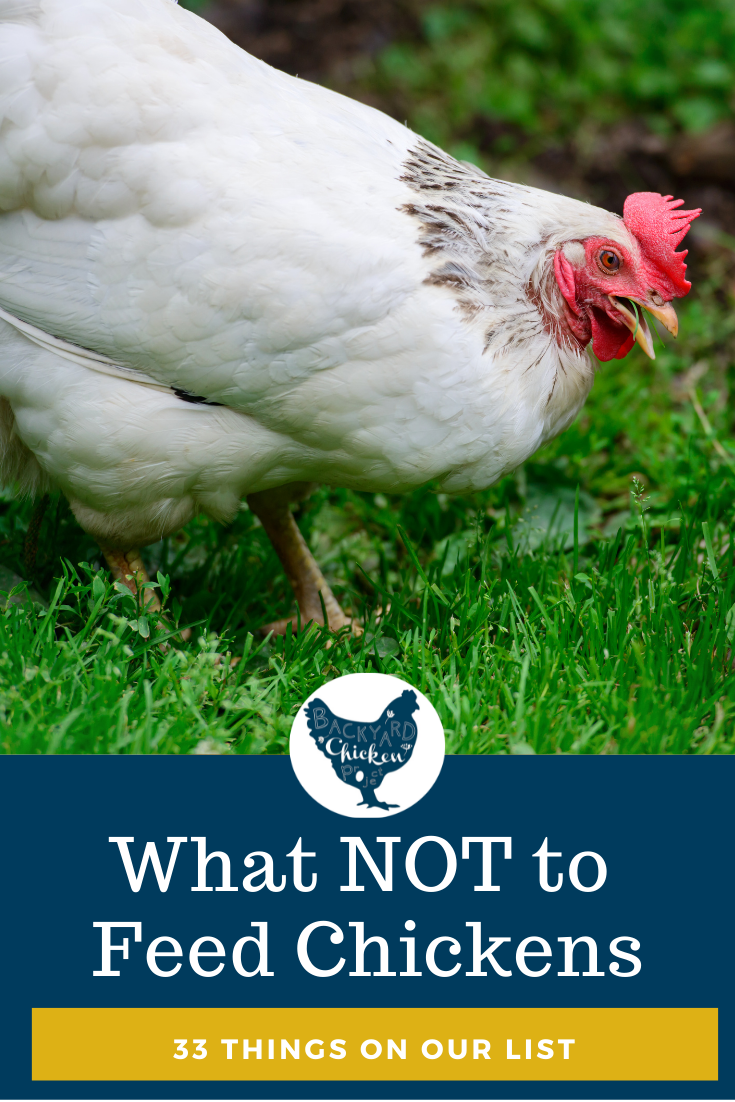
Carrots can be a nutritious and tasty treat for chickens, but there are a few precautions that should be taken when feeding them to your flock. Chickens can easily choke on large pieces of carrot, so it is important to make sure that the carrots are cut into small pieces before feeding them. The carrots should also be free of any chemicals or pesticides, so it is best to buy organic carrots whenever possible. Another important safety measure is to make sure that the carrots are well cooked before feeding them to your chickens. Raw carrots can be difficult for chickens to digest and can cause digestive issues.
When feeding carrots to your chickens, it is important to keep the portions small and feed only a few carrots at a time. Too many carrots can cause chickens to become overweight and lead to health problems. Additionally, it is important to monitor your chickens while they are eating carrots to make sure they are not overeating.
Finally, it is important to not feed carrots too often. Carrots should be fed as an occasional treat and not as a replacement for a balanced diet. Additionally, carrots should be fed in moderation and not as an everyday treat. When used properly, carrots can make a great addition to your chicken’s diet and help improve the overall health of your flock.
How Much Carrots Can Chickens Eat?
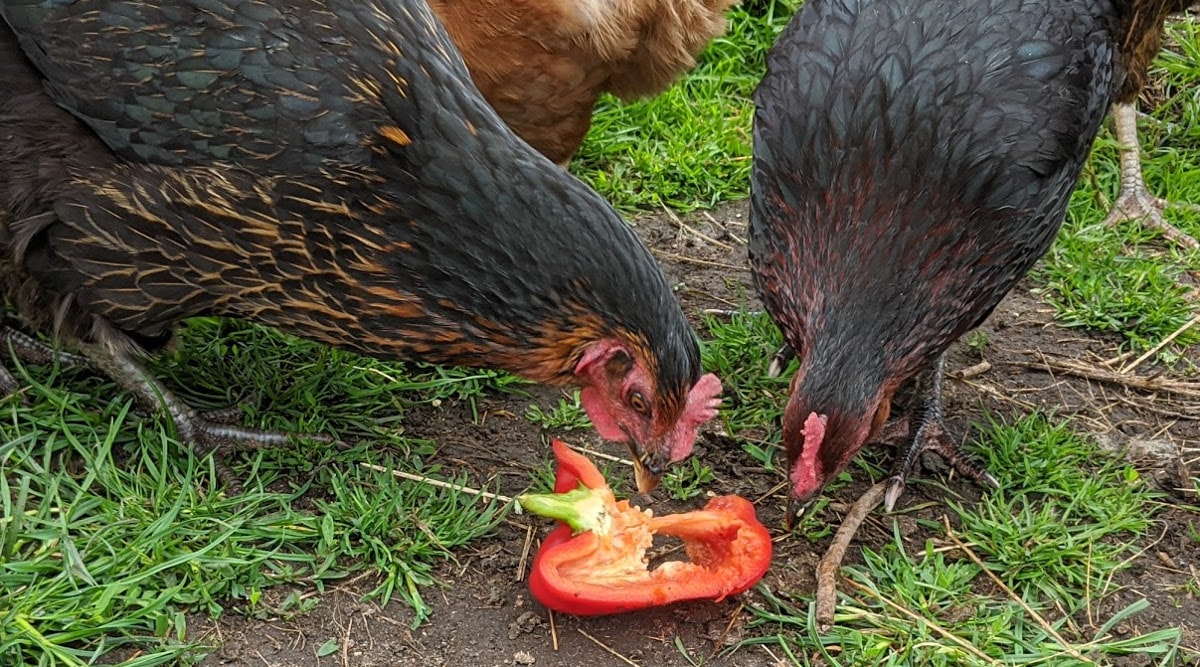
Chickens can eat carrots, but not too much. An average-sized chicken should only consume a small piece of carrot at a time, as it can cause an upset stomach. Carrots can be offered as a treat, but should not be a mainstay in their diet. Can baby chicks eat carrots? Yes, but only in small amounts, as they are still developing and may not be able to digest it properly.
Carrot tops and leaves are also edible for chickens, but should be offered sparingly. Too much can cause digestive issues and can even be toxic in large amounts. Carrots should be chopped into small pieces, as chickens can choke on large chunks.
It is important to remember that carrots should not be a major part of a chicken’s diet. A balanced diet of quality feed, vegetables, and occasional treats is important for healthy, happy chickens. With the right diet, carrots can be a great addition to your chicken husbandry.
How Often Can Chickens Eat Carrots?
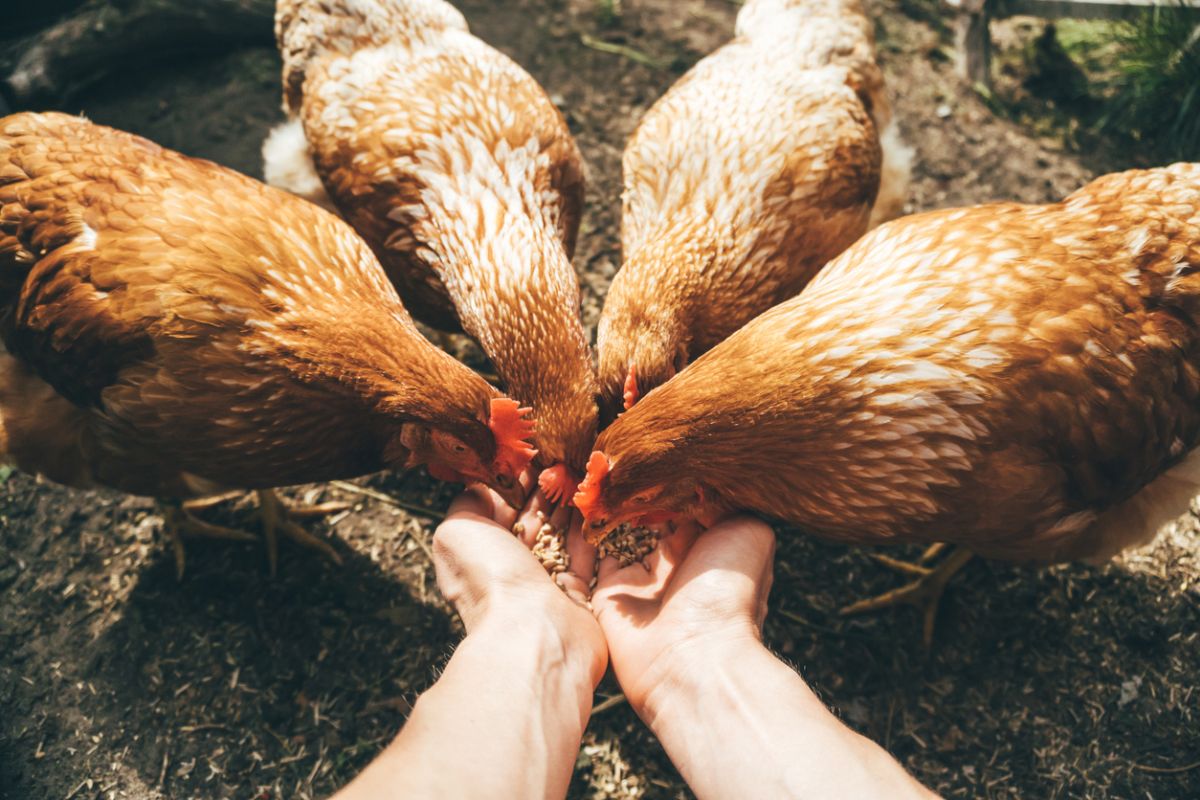
Carrots are a great treat for chickens and can help to improve their diet and health. Here are some interesting facts about how often chickens can eat carrots:
- Chickens can eat carrots every day. It is important to give them carrots in moderation, as part of a balanced diet. Carrots can be provided as fresh, raw carrots or cooked carrots.
- Chickens can eat cooked carrots, but it is important to make sure they are cooked properly. Overcooked carrots can be difficult for chickens to digest, so it is best to steam or bake them lightly.
- Raw carrots are a nutritious snack for chickens. They are packed with vitamins, minerals, and fiber, making them a great addition to a chicken’s diet. Raw carrots should be chopped into small pieces before feeding them to chickens.
- Carrots should not be the only food that chickens eat. A balanced diet is essential for chickens’ health, and it is important to provide them with a variety of other foods such as grains, greens, and protein.
By providing carrots in moderation, you can help to improve your chicken’s health and diet. Carrots are a great treat for chickens, and a nutritious snack.
Other Vegetables and Fruits Chickens Can Eat
Chickens can eat most vegetables and fruits, including carrots. Other vegetables that chickens enjoy include lettuce, spinach, broccoli, cauliflower, cabbage, kale, and celery. Fruits that chickens can eat include apples, bananas, grapes, and berries.
Can you feed carrots to chickens? Yes, you can feed carrots to chickens. Carrots are a great source of vitamins and minerals, and they can help provide chickens with an important source of nutrition and energy. Carrots also provide chickens with a tasty snack.
| Vegetables | Fruits |
|---|---|
| Lettuce | Apples |
| Spinach | Bananas |
| Broccoli | Grapes |
| Cauliflower | Berries |
| Cabbage | Carrots |
| Kale | |
| Celery |
Frequently Asked Questions
What Benefits Do Carrots Offer to Chickens?
Carrots are a great source of vitamins and minerals for chickens. They contain potassium, which is important for healthy egg production and digestion, as well as vitamin A, which helps support the immune system. Carrots are also high in dietary fiber, which helps keep chickens regular and aids in digestion. Carrots can also be used to supplement a chicken’s diet, as they are rich in antioxidants and can help to balance out other foods that may be lacking in certain nutrients. As an added benefit, carrots can also be used as a natural wormer, helping to keep chickens healthy and parasite-free.
Are there any risks associated with feeding carrots to chickens?
Carrots are generally safe for chickens to eat and are a great source of nutrition. However, excessive amounts of carrots can cause digestive problems, such as diarrhea and crop impaction, as well as lack of appetite, so it is important to feed carrots in moderation. Carrots should also be chopped into small pieces to avoid choking.
How often should carrots be fed to chickens?
- Daily – Carrots can be fed to chickens daily in small amounts, as a supplement to their regular feed. Aim to give them no more than 1/4 cup of carrots per chicken per day.
- Occasionally – As a treat, chickens can be fed carrots no more than once a week. This should be in addition to their daily feed and should not exceed 1/4 cup per chicken per week.
- Seasonally – Carrots may also be fed to chickens during certain seasons as part of their diet. This is especially beneficial for chickens during winter months when there is less foraging available.
Is There a Specific Type of Carrot That is Best for Chickens?
Carrots are an excellent source of dietary fiber, vitamins, minerals, and antioxidants that can help improve the health and well-being of chickens. However, some types of carrots are more nutritionally beneficial than others. Carrots with higher amounts of beta-carotene, such as orange carrots, are preferred, as they provide more antioxidants and vitamins. Carrots should also be washed thoroughly before being fed to chickens, as they may contain dirt and other contaminants. Additionally, carrots should be cut into small pieces, so that chickens can easily eat them.
Do other vegetables offer the same benefits as carrots for chickens?
Carrots are a great source of nutrition for chickens. They provide vitamins, minerals, and antioxidants that can help to improve overall health and performance. However, there are other vegetables that can offer similar benefits for chickens as well.
- Sweet Potatoes are a great source of vitamins A and C, as well as iron and calcium. They can help to improve egg production and vision in chickens.
- Squash is a great source of vitamins A and C, as well as potassium. Squash can help to boost the immune system and egg production in chickens.
- Green Beans offer vitamin A and C, as well as calcium and iron. They can help to improve egg production and vision in chickens.
- Kale is rich in vitamins A and C, as well as calcium and iron. Kale can help to boost the immune system, improve egg production, and promote healthy feathers.
- Broccoli is full of vitamins A and C, as well as calcium and iron. Broccoli can help to promote egg production and healthy feathers in chickens.
Although carrots are an excellent source of nutrition for chickens, there are other vegetables that can offer similar benefits. Be sure to provide your chickens with a variety of vegetables to ensure they get all the essential vitamins and minerals they need for optimal health and performance.
Conclusion
Carrots are an excellent food choice to help improve the health of your chickens. They are rich in essential vitamins and minerals and can help keep chickens healthy and strong. They also provide chickens with necessary fiber, which helps with digestive health. Best of all, carrots are affordable, accessible, and easy to feed to chickens. With the right supplementation, carrots can be a great addition to your chicken husbandry.
